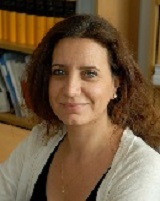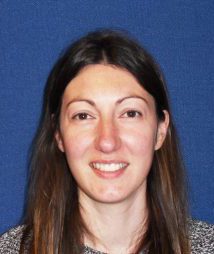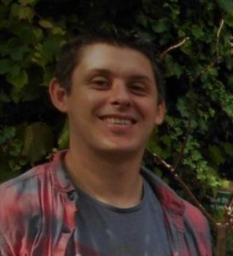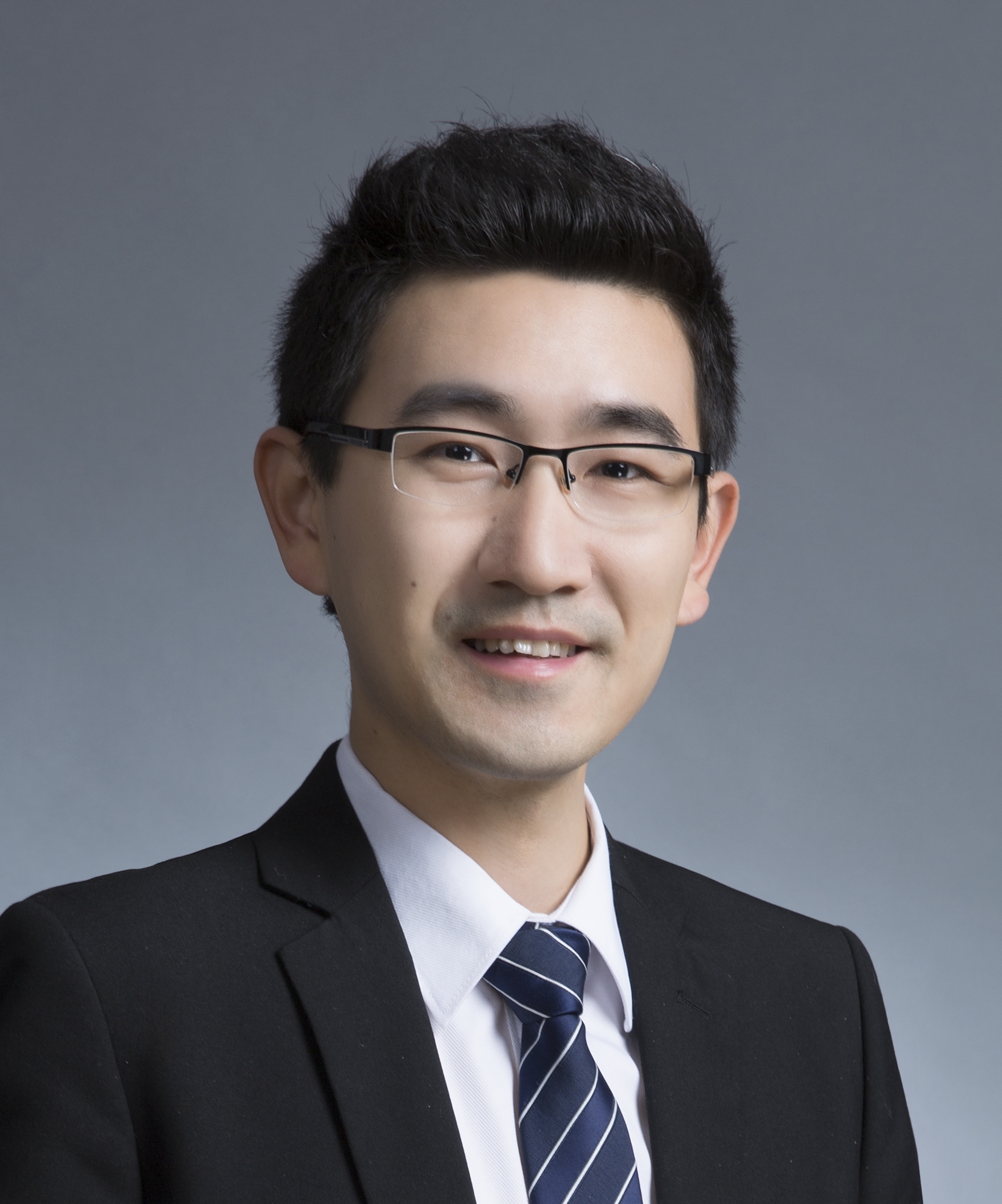Leadership
Professor Paul Elliott
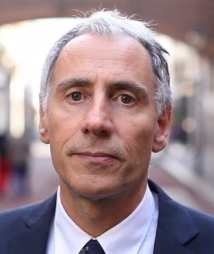
HPRU Director
School of Public Health, Imperial College London
CRTH Projects:
Theme 1 Project 1: Nuclear installations and childhood cancer
Theme 1 Project 3: Health risks associated with mobile phones and police radios
Theme 2 Project 2: Pathways and biomarkers of mixtures of chemical exposures
Theme 2 Project 4: Biomarkers of early-life exposures and neurodevelopmental outcomes
Theme 3 Project 3: Chemical exposures and health effects near selected brownfield sites
Publications:
Dr Liz Ainsbury
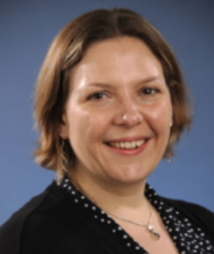
UKHSA Lead
UK Health Security Agency
CRTH Projects:
Theme 2 Project 1: Exposure and risk markers in medical uses of IR
Theme 3 Project 2: Occupational exposure to ionising radiation
Research Areas:
Liz is a Ph. D. physics graduate with 10 years of experience as a Radiation Protection Scientist at UKHSA’s Centre for Radiation, Chemical and Environmental Effects. As head of the Cytogenetics Group and the Chromosome Dosimetry Service, Liz’s main field of research is radiation biodosimetry – using the cytogenetic (cellular and chromosomal) effects of ionising radiation to estimate individual doses. The service is further underpinned by Liz and her colleagues’ studies into the cytogenetic effects of ionising radiation and statistical methods to support research and development, and Liz also has an interest in wider radiation protection, particularly whole body radiation effects and radiation cataractogenesis.
Liz has participated in many national and international collaborative research projects including leading/co-leading recent projects developing statistical analysis methods for biodosimetry (EU FP7 MULTIBIODOSE WP6 lead, Royal Society IJP080153), advancing EU biodosimetry techniques and networking for provision of emergency response capabilities (MULTIBIODOSE, RENEB, WHO BioDoseNet, EURADOS). Liz currently co-leads two projects focused on development of biomarkers for radiotherapy patients – the NIHR HPRU project “Chemical and Radiation Threats and Hazards” in collaboration with Newcastle University and the US NIH funded CMCR “RTGene”project and is PI for a current EU CONCERT funded project ‘LDLensRad’ investigating mechanisms of radiation induced cataracts. Liz has presented at numerous scientific conferences and meetings, including giving invited talks, and has contributed to approximately 70 peer-reviewed publications, including around 20 as the first named author.
Liz has supervised a number of successful Ph. D. projects and regularly lectures on a number of courses at UK and EU Universities, including the Oxford University Radiation Oncology & Biology M. Sc. in Radiation Biology. Liz’s current committee memberships include ISO Working Group 18 on biological dosimetry (2014 – current) and US National Council on Radiation Protection and Measurements Subcommittee 1-23: Guidance on Radiation Dose Limits for the Lens of the Eye (2013 – current). Liz is a Member of the Institute of Physics (MInstPhys), the Society for Radiation Protection and the Association for Radiation Research.
In 2014, Liz received the MELODI Young Researcher Award for multidisciplinary EU low dose radiation research and in 2007 Liz received the inaugural Institute of Physics Very Early Career Woman Physicist of the Year Award for research and outreach activities encouraging young people to study physics.
Publications:
HPRU Director
HPRU Deputy Lead / UKHSA Lead
Theme 1 Co-Leads
Dr Paul O’Mahoney

UK Health Security Agency
CRTH Projects:
Theme 1 Project 4: Potential effects of sunlight on cardiometabolic health
Paul is an engineer/physicist specialising in the interactions of light and living matter. He is leading the Optical Radiation Effects Group at the UKHSA, continuing the work of uncovering the interactions between light and life, and how these might impact human health.
Alongside extensive work on light dosimetry and safety, he is involved in clinical work, including clinical trials, and working with patients on designing research, treatments and after-care. He has also worked in instrumentation development, designing and validating devices for use in research or clinical practice. Most notably I led a British Skin Foundation funded project to develop an LED-based device for clinical phototesting.
His research group at the UKHSA is concerned with studying the effects of optical radiation on human health. This includes the beneficial and detrimental effects of natural daylight and artificial light sources, from the ultraviolet (UV) through the visible light spectrum to near-infrared (N-IR).
Professor Mireille Toledano

Theme 1 Co-Lead
School of Public Health, Imperial College London
CRTH Projects:
Theme 1 Project 1: Nuclear installations and childhood cancer
Theme 1 Project 3: Health risks associated with mobile phones and police radios
Theme 2 Project 4: Biomarkers of early-life exposures and neurodevelopmental outcomes
Publications:
Theme 2 Co-Leads
Dr Christophe Badie
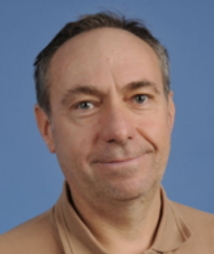
Theme 2 Co-Lead
UK Health Security Agency
CRTH Projects:
Theme 2 Project 1: Exposure and risk markers in medical uses of IR
Theme 3 Project 1: Mutagenesis and toxicology in 3D cell systems
Research Areas:
I am biologist who carried out my PhD in Radiobiology-Radiopathology at an cancer hospital, the Gustave Roussy institute in Villejuif near Paris which I obtained from the University of Paris XI – Orsay, France). Radiotherapy and many chemotherapeutics rely on DNA double-stranded break (DSB) formation to drive the killing of tumour cells over several cell division cycles but also damaging surrounding normal tissue cells. Using primary cultures of fibroblasts from patients, I worked on inter-individual radiation sensitivity and DSB repair. I identified the first radiotherapy patient whose radiation toxicity was due to a defect in DNA DSB repair which was thought to be almost incompatible with survival at the time; it was found later that the patient had a mutation in ligase IV. After several post-doctorate positions (one on p53 adenovirus and radiotherapy and one cell-cycle arrests following ionising radiation exposure), I became in 2005 the leader of the Cancer Mechanisms and Biomarkers group in the Radiation Effects department at the Centre for Radiation Chemical and Environmental Hazards, of PHE (now UKHSA) near Oxford. More recently, I became interested in cancer genomics and have been associated with an important recent study on mutational signatures of ionizing radiation in second malignancies (Behjati S. et al Nature communications 2016). I have developed a strong interest in the effects of radiation exposure on the immune system as demonstrated by our recent publications on aging of the T-cell receptor repertoire (Candéias SM. et al. Cell Mol Life Sci. 2017) and on inflammatory gene expression following genotoxic cancer therapy (Manning G. et al Front Immunol. 2017) and last but not least, detecting cancers early by tracking and monitoring the progression of initiated, ‘pre-cancerous’ cells (Verbiest T. et al. Leukemia 2018).
I am also very interested in new technical developments to identify sub-populations of blood cells and extracellular vesicles as a source of new biomarkers of radiation exposure, susceptibility and toxicity.
Other roles
I now have an established reputation in the international radiation research field and I am a committee member of the Association for Radiation Research (ARR) and currently its treasurer. I am also a member of the European Radiation Research Society and the Research Orientation of the French Institute of Radioprotection and Nuclear Safety (IRSN) Committee. I have significant involvement in radiation research in Europe MELODI (European Multidisciplinary European Low Dose Risk Research Initiative).
I give lectures at Oxford University for the MSc Radiation Biology of the Department of Oncology on carcinogenesis and individual sensitivity. I am passionate and actively involved in training of the new generation of biologists with expertise in radiation effects and there a currently several MSc and PhD students in the group. I also review for several relevant international journals as well as UK and international funding bodies.
Member of the NATO Research Task Group (RTG) Human Factors and Medicine Panel (HFM) HFM-291: Ionizing Radiation Bioeffects and Countermeasures Member of the scientific council of The International Association of Biological and EPR Radiation Dosimetry (IABERD) is a scientific association, established for the public benefit to advance research, development and education in the biological dosimetry and EPR dosimetry applied to ionizing radiation.
Publications:
Professor Marc Chadeau-Hyam
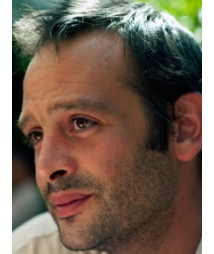
Theme 2 Co-Lead
School of Public Health, Imperial College London
CRTH Projects:
Theme 2 Project 2: Pathways and biomarkers of mixtures of chemical exposures
Theme 4 Project 3: Detection of HTAs in water
Publications:
Theme 3 Co-Leads
Dr Richard Haylock

Theme 3 Co-Lead
UK Health Security Agency
CRTH Projects:
Theme 3 Project 2: Occupational exposure to ionising radiation
Research Areas:
I have led the Radiation Epidemiology group since 2017 when it was formed. Previously I led a statistical analysis group, one of the two groups involved in radiation epidemiology at UKHSA.
I joined the National Radiological Protection Board (NRPB) in 1991, which was later subsumed into PHE, now UKHSA, having gained a BSc in Mathematics and an MSc in Medical Statistics both from Leicester University. At NRPB I began research into the use of Bayesian statistics for estimating computationally expensive functions, which led to a PhD in 1997 from Nottingham University. I have considerable experience with the analysis of large epidemiological datasets, in particular the UK National Registry for Radiation Workers, the British Nuclear Fuels Limited cohort and the British Nuclear Test Veteran’s Cohort.
Over the last 10 years I have been involved with a number of large collaborative International epidemiology projects, notably the EC funded SOLO project and the INWORKS studies of occupational radiation exposure risk.
Publications:
Professor David Phillips
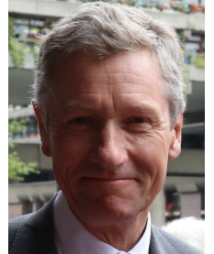
KCL Lead & Theme 3 Co-Lead
Kings College London
CRTH Projects:
Theme 3 Project 1: Mutagenesis and toxicology in 3D cell systems
Theme 3 Project 5: Pesticide toxicity
Publications:
Theme 4 Co-Leads
Dr Nora Bourbia
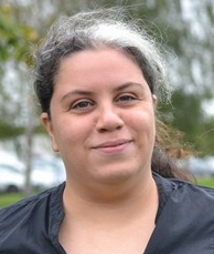
Theme 4 Co-Lead
UK Health Security Agency
CRTH Projects:
Theme 4 Project 1: Novel screens for environmental neurotoxins
Research Areas:
After obtaining a Master’s degree in cellular and integrative neuroscience at University of Strasbourg (France) and a PhD in medicine in the field of neurophysiology of pain at University of Helsinki (Finland), Nora moved to the UK as a post-doc in neurobehavioural genetics at the MRC Harwell (UK) and then joined PHE (now UKHSA) to lead the Neurobiology group.
Throughout my academic journey I was interested by the field of neuroepigenetics. How and why adult on-set of neurological/neuropsychiatric disorders start? At which moment and how the brain cells trigger a succession of events that cascade to neuronal loss and memory decline in neurodegenerative disorders? How life events trigger depression and affective disorders in adults? How environmental hazards induce the switch from a healthy to a pathological neuron? To address these questions, I have followed an academic path to learn skills in animal behaviour, electrophysiology, biochemistry and genetics to implement them in our group and investigate the effects of environmental hazards on the epigenetics of brain disorders.
Publications:
Professor Tom Welton
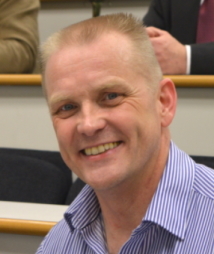
Theme 4 Co-Lead
Imperial College London
CRTH Projects:
Theme 4 Project 4: Clearance of neurotoxins and other highly toxic chemicals from the environment
Publications:
Investigators
Dr Michael Antoniou

Investigator
King’s College London
CRTH Projects:
Theme 3 Project 5: Pesticide toxicity
Publications:
Dr Stephen Barnard
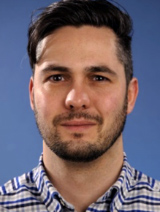
Investigator
UK Health Security Agency
CRTH Projects:
Theme 2 Project 1: Exposure and risk markers in medical uses of IR
Theme 3 Project 2: Occupational exposure to ionising radiation
Research Areas:
Stephen is currently working at UKHSA in the Radiation Effects department of the Centre for Radiation, Chemical and Emergency Response (CRCE). In his research area, he develops techniques in biological dosimetry (dicentric, micronuclei and FISH translocations) with a particular focus on implementing and improving the gamma-H2AX/53BP1 foci assay for rapid/triage dose estimation as well as clinical patient applications. He also has an interest in researching the role of radiation in cataractogenesis and lens epithelial cells, particularly the role of DNA damage/repair and proliferation.
Publications:
Dr Leon Barron
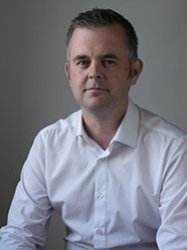
Investigator
Environmental Research Group, School of Public Health, Imperial College London
CRTH Projects:
Theme 2 Project 2: Pathways and biomarkers of mixtures of chemical exposures
Theme 2 Project 3: Biomarkers of potential exposures from brownfield sites
Theme 4 Project 1: Novel screens for environmental neurotoxins
Theme 4 Project 3: Detection of HTAs in water
Publications:
Mr Sibo Cheng

PhD student
School of Public Health, Imperial College London
CRTH Projects:
Theme 2 Project 2: Pathways and biomarkers of mixtures of chemical exposures
Publications:
Mr Davide Ciccarelli
PhD Student
School of Public Health, Imperial College London
CRTH Projects:
Theme 4 Project 3: Detection of HTAs in water
Publications:
Dr Sonia Dagnino

Investigator
School of Public Health, Imperial College London
CRTH Projects:
Theme 2 Project 2: Pathways and biomarkers of mixtures of chemical exposures
Publications:
Dr Bethan Davies
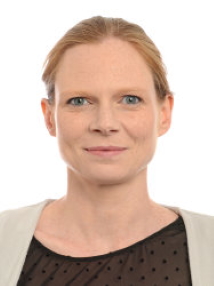
Investigator
School of Public Health, Imperial College London
CRTH Projects:
Theme 1 Project 1: Nuclear installations and childhood cancer
Theme 2 Project 3: Biomarkers of potential exposures from brownfield sites
Theme 3 Project 3: Chemical exposures and health effects near selected brownfield sites
Publications:
Dr Daniela Fecht

Investigator
School of Public Health, Imperial College London
CRTH Projects:
Theme 1 Project 1: Nuclear installations and childhood cancer
Theme 3 Project 3: Chemical exposures and health effects near selected brownfield sites
Publications:
Ms Scarlett Ferguson
PhD student
King’s College London
CRTH Projects:
Theme 3 Project 5: Pesticide toxicity
Publications:
Dr Lourdes Cruz Garcia
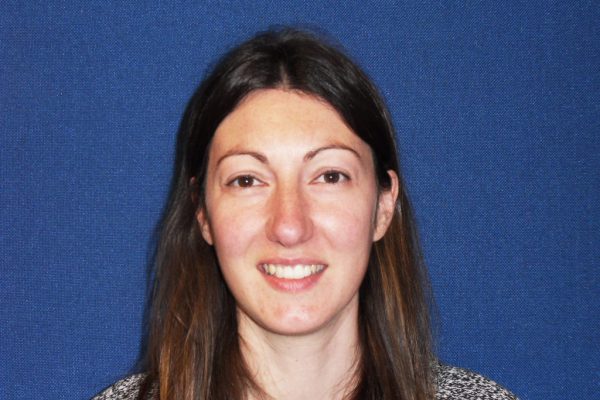
Investigator
UK Health Security Agency
Theme 2 Project 1: Exposure and risk markers in medical uses of IR
Research Areas:
Lourdes is a biologist with a profound background in molecular biology. She started her research career at the University of Barcelona (Spain) where she received her MSc and PhD. After her postdoctoral studies at the University of Utah (USA) and further research work at the University of Portsmouth (UK), she was recruited at PHE’s (now UKHSA) CRCE in Cancer mechanism and biomarkers group as a Scientist.
As a Senior Radiation Protection Scientist, Lourdes is involved in projects focused on the role of ionizing radiation in leukemogenesis and the identification of new biomarkers of exposure. She is currently investigating the effect of confounding factors on transcriptional biomarkers, the different response of transcript variants to radiation and the modulation of radiation-induced leukemogenesis by extracellular vesicles.
Lourdes has taken on UKHSA’s research work on multi-institutional European and NIH funded projects focused on the identification of inflammation-associated genes as potential biomarkers of radiation exposure by using high throughput methods for gene expression analysis.
Publications:
Mr Gareth Hazell
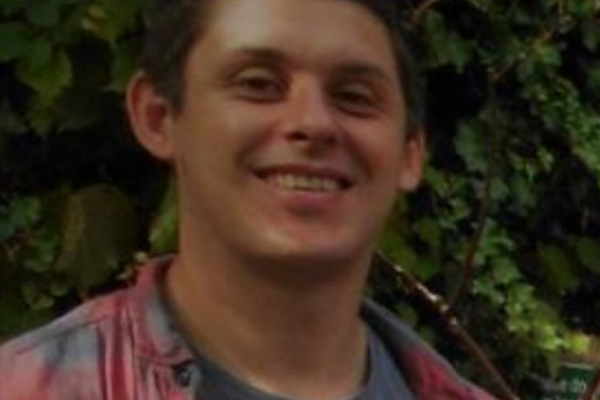
Investigator
UK Health Security Agency
Theme 1 Project 4: Potential effects sunlight on cardiometabolic health
Research Areas:
Publications:
Mr Joel Heller
Investigator
School of Public Health, Imperial College London
CRTH Projects:
Theme 1 Project 3: Health risks associated with mobile phones and police radios
Publications:
Professor Patricia Hunt

Investigator
Imperial College London
CRTH Projects:
Theme 4 Project 4: Clearance of neurotoxins and other highly toxic chemicals from the environment
Publications:
Mr Tom James
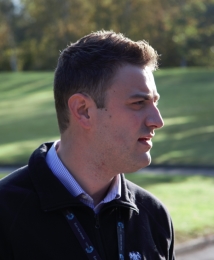
PhD Student
UK Health Security Agency
Research Areas:
Thomas is a Health Protection Scientist and analytical chemist for UKHSA with five years’ experience in mass casualty decontamination. He’s worked alongside multiple government agencies assisting in the provision of analytical evidence for the efficacy of decontamination interventions through multiple human trials and exercises. He has an MSc in analytical chemistry from the University of South Wales and is currently studying for a PhD with the Open University on the decontamination of novel chemical agents, funded through the NIHR HPRU in Chemical and Radiation Threats and Hazards.
Publications:
Dr Sylwia Kabacik
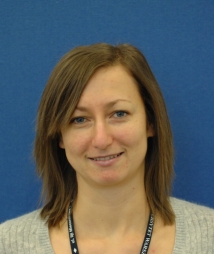
Investigator
UK Health Security Agency
CRTH Projects:
Research Areas:
Sylwia obtained her BSc and MSc in biotechnology from Warsaw University. During her PhD, she developed a gene expression based assay for radiation biodosimetry purpose which is currently used in the department. Sylwia joined the Cellular Biology group 6 years ago to investigate the mechanism by which ionising radiation can cause cardiovascular disease.
Sylwia is interested in mechanistic aspects of radiation biology, particularly in non-mutation routes by which radiation can instigate pathology. At the moment she is studying radiation-induced post-mitotic cell fusions which give rise to dangerous polyploid cells. Additionally, she is involved in investigating the mechanisms of epigenetic ageing.
Sylwia has over 10 years’ experience in molecular biology and co-authored a number of papers in the radiobiology field.
Publications:
Dr Robie Kamanyire
Investigator
UK Health Security Agency
Theme 3 Project 3: Chemical exposures and health effects near selected brownfield sites
Research Areas:
Publications:
Dr Marina Khazova
Investigator
UK Health Security Agency
Theme 1 Project 4: Potential effects sunlight on cardiometabolic health
Research Areas:
Ms Marina Khazova is Principal Researcher in the Laser and Optical Radiation Dosimetry group at UKHSA. Her research interests include investigations into health effects of optical radiation, both natural and artificial, metrology and instrumentation for the assessment of exposures to optical radiation. She co-authored more than 80 publications and international patents and is currently the UK technical expert in international standard committees in safety of laser products and protective eyewear.
Publications:
Ms Anna Lindell

PhD student
University of Cambridge
CRTH Projects:
Theme 3 Project 4: Gut microbiome mediation of toxicity of environmental pollutants
Publications:
Dr Tim Marczylo
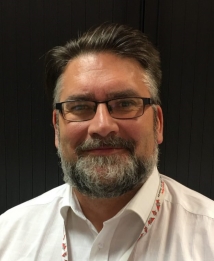
Investigator
UK Health Security Agency
Research Areas:
Dr Tim Marczylo Ph.D., B.Sc. is a principal toxicologist and leads a small team within the Toxicology Department at the Centre for Radiation, Chemical and Environmental Hazards, UKHSA. His main research focus is on the exposure of the public to potentially damaging environmental toxicants and their health consequences. Recently, research has focussed on biomarkers of electronic cigarette exposure and on evaluating mass casualty decontamination strategies.
Publications:
Dr Robin Mesnage
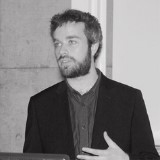
Investigator
King’s College London
CRTH Projects:
Theme 3 Project 5: Pesticide toxicity
Publications:
Professor Bijan Modarai

Investigator
King’s College London
CRTH Projects:
Theme 2 Project 1: Exposure and risk markers in medical uses of IR
Publications:
Dr Jayne Moquet

Investigator
UK Health Security Agency
CRTH Projects:
Theme 2 Project 1: Exposure and risk markers in medical uses of IR
Theme 3 Project 2: Occupational exposure to ionising radiation
Research Areas:
Jayne is a Ph. D. biology graduate with more than 35 years of experience as a Radiation Protection Scientist at UKHSA’s Centre for Radiation, Chemical and Environmental Effects. As a Principal Radiation Protection Scientist in the Cytogenetics Group, Jayne has co-authored over 90 papers on experimental and medical aspects of radiation cytogenetics and biological dosimetry, using the dicentric, micronucleus, premature chromosome condensation, FISH-translocation and γ-H2AX assays. In particular, Jayne explores the application of biomarker assays for accidental, occupational and medical exposure scenarios. Current work is focused on development of biomarkers for radiotherapy patients.
Publications:
Dr Ian Mudway
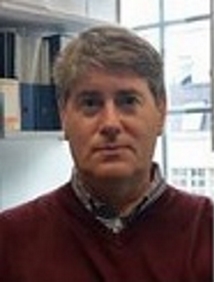
Investigator
Environmental Research Group, School of Public Health, Imperial College London
CRTH Projects:
Theme 2 Project 2: Pathways and biomarkers of mixtures of chemical exposures
Theme 2 Project 3: Biomarkers of potential exposures from brownfield sites
Theme 3 Project 3: Chemical exposures and health effects near selected brownfield sites
Theme 3 Project 5: Pesticide toxicity
Publications:
Dr Keng Tiong Ng

Investigator
Environmental Research Group, School of Public Health, Imperial College London
CRTH Projects:
Publications:
Dr Grainne O’Brien
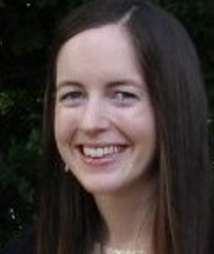
Investigator
UK Health Security Agency
CRTH Projects:
Theme 2 Project 1: Exposure and risk markers in medical uses of IR
Theme 3 Project 1: Mutagenesis and toxicology in 3D cell systems
Research Areas:
Grainne has been a member of CRCE’s Cancer Mechanisms and Biomarkers group for over 10 years. During that time she has participated in many research projects such as identifying gene expression biomarkers of radiation exposure by nCounter and QPCR technologies and investigating the effect of low doses of radiation on the hematopoietic stem cell populations. Grainne recently obtained her PhD from Brunel University (UK) where she focused on investigating the genetic and epigenetic pathways affected in the development of acute myeloid leukaemia after radiation exposure.
Publications:
Dr Kiran Patil
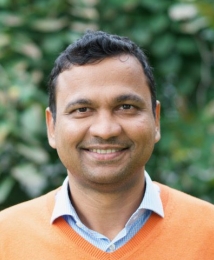
Investigator
University of Cambridge
CRTH Projects:
Theme 3 Project 4: Gut microbiome mediation of toxicity of environmental pollutants
Theme 3 Project 5: Pesticide toxicity
Publications:
Dr Frédéric Piel
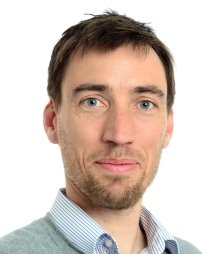
Training Programme Coordinator
School of Public Health, Imperial College London
CRTH Projects:
Theme 1 Project 1: Nuclear installations and childhood cancer
Theme 3 Project 3: Chemical exposures and health effects near selected brownfield sites
Publications:
Dr Charles Romain
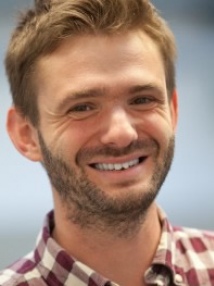
Investigator
Imperial College London
CRTH Projects:
Theme 4 Project 4: Clearance of neurotoxins and other highly toxic chemicals from the environment
Publications:
Dr Les Scott
Investigator
UK Health Security Agency
Theme 3 Project 2: Occupational exposure to ionising radiation
Research Areas:
Publications:
Dr Steven Shen
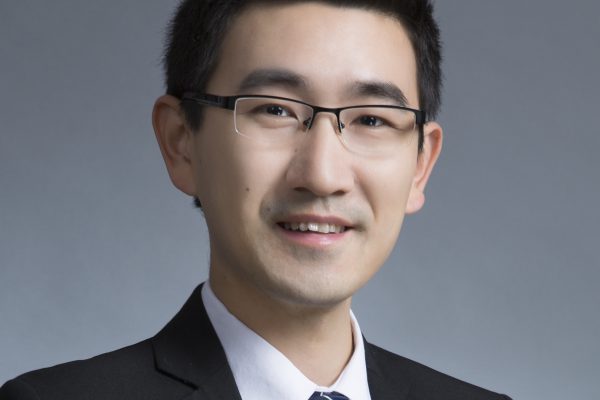
Investigator
School of Public Health, Imperial College London
CRTH Projects:
Theme 1 Project 3: Health risks associated with mobile phones and police radios
Research Areas:
I am a Research Associate in the Department of Epidemiology and Biostatistics, Imperial College London. I obtained my PhD (life course and lifestyle epidemiology) from The University of Hong Kong. My research interests focus on adolescent physical and mental health in relation to a wide range of lifestyle factors such as digital technology use, sleep, and physical activity. I am now working on Study of Cognition, Adolescents and Mobile Phones (SCAMP), which is investigating potential effects of mobile phone and other wireless devices on adolescents’ mental health and cognition.
Publications:
Dr Catherine Smith
Investigator
UK Health Security Agency
Theme 3 Project 2: Occupational exposure to ionising radiation
Research Areas:
Publications:
Dr Rachel B Smith

Investigator
School of Public Health, Imperial College London
CRTH Projects:
Theme 2 Project 4: Biomarkers of early-life exposures and neurodevelopmental outcomes
Publications:
Dr Mingzhu Sun
Investigator
UK Health Security Agency
CRTH Projects:
Theme 2 Project 1: Exposure and risk markers in medical uses of IR
Theme 3 Project 2: Occupational exposure to ionising radiation
Research Areas:
Mingzhu has a research background in Biomaterials and Tissue Engineering including a number of publications and patents. She also has a wide range of knowledge and hands-on experience in Biomedical Sciences, such as cellular therapy and stem cells. More recently, Mingzhu has become an established radiation scientist of cytogenetic techniques for radiation biodosimetry, particularly application of the cytogenetic dicentric, cytokinesis-block micronucleus and FISH translocation assays for routine and emergency response. Mingzhu has held a number of research grants and is currently contributing to development of the Premature Chromosome Condensation Assay (PCC) within UKHSA and to the NIH CMCR RTGene and NIHR HPRU projects focused on biomarkers of exposure and effect for radiotherapy patients.
Publications:
Dr Samantha Terry

Investigator
King’s College London
Go to external pagePersonal page
CRTH Projects:
Theme 2 Project 1: Exposure and risk markers in medical uses of IR
Publications:
Dr Peter Thompson

Investigator
National Physical Laboratory
CRTH Projects:
Publications:
Professor Paolo Vineis
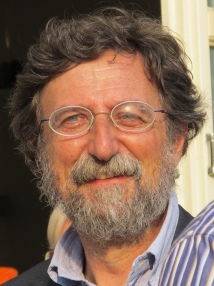
Investigator
School of Public Health, Imperial College London
CRTH Projects:
Theme 2 Project 2: Pathways and biomarkers of mixtures of chemical exposures
Theme 4 Project 3: Detection of HTAs in water
Publications:
Dr Dragana Vuckovic
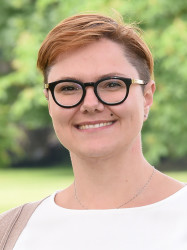
Investigator
School of Public Health, Imperial College London
CRTH Projects:
Theme 2 Project 2: Pathways and biomarkers of mixtures of chemical exposures
Publications:
Ms Holly Walder
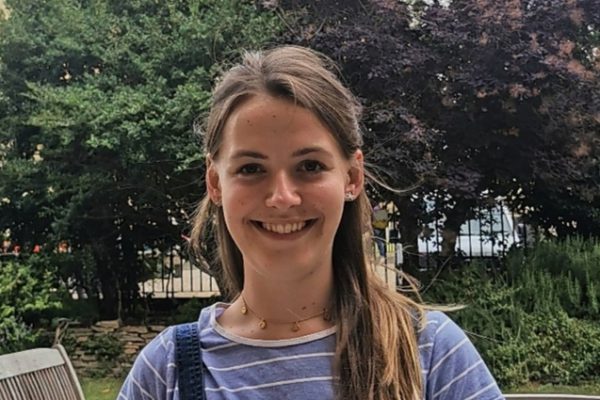
PhD Student
School of Public Health, Imperial College London
CRTH Projects:
Theme 2 Project 3: Biomarkers of potential exposures from brownfield sites
Publications:
Mr Christopher Whiteman
PhD Student
UK Health Security Agency
Research Areas:
Publications:
Professor Anne Willis
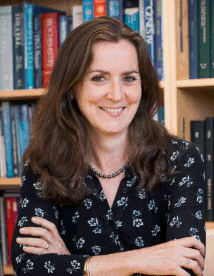
University of Cambridge Lead
University of Cambridge
CRTH Projects:
Theme 3 Project 4: Gut microbiome mediation of toxicity of environmental pollutants
Theme 3 Project 5: Pesticide toxicity
Publications:
Dr Stephanie Wright

Investigator
Environmental Research Group, School of Public Health, Imperial College London
CRTH Projects:
Theme 2 Project 3: Biomarkers of potential exposures from brownfield sites
Publications:
Management Team
Dr Simon Bouffler
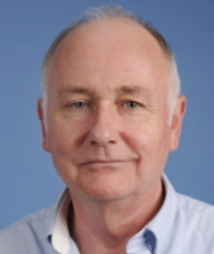
HPRU Knowledge Mobilisation Lead
UK Health Security Agency
Research Areas:
Simon trained as a biologist, receiving a BSc and PhD from the University of Southampton and has worked in the radiation protection field for over 25 years. In his role of Head of Radiation Effects Department he has responsibility for epidemiological and experimental research related to radiation risk; this includes both ionising and non-ionising radiations and ultra-violet light. He has wide ranging research interests on the mechanisms of radiogenic diseases.
Simon has been involved in many radiation protection research projects and currently leads on stakeholder engagement for the EU CONCERT project. He is Chair of the MELODI Strategic Research Agenda working group and co-ordinated the RISK-IR project that investigated the effects of ionising radiation, particularly at low doses, on stem cell function. Simon has published extensively on radiation cancer and leukaemia mechanisms, radio-sensitivity, circulatory disease and eye lens sensitivity with over 100 peer reviewed publications.
In addition, Simon has a number of international advisory roles. He is the UK Representative to the United Nations Scientific Committee on the Effects of Atomic Radiation (UNSCEAR) and a member of the International Commission on Radiological Protection (ICRP) Main Commission. He is currently working with the US National Council on Radiation Protection and Measurement’s (NCRP) SC 1-26 on Approaches for Integrating Radiation Biology and Epidemiology for Enhancing Low Dose Risk Assessment. In 2018, Simon was awarded the Weiss medal by the Association for Radiation Research.
Publications:
Dr Frédéric Piel

Training Programme Coordinator
School of Public Health, Imperial College London
CRTH Projects:
Theme 1 Project 1: Nuclear installations and childhood cancer
Theme 3 Project 3: Chemical exposures and health effects near selected brownfield sites
Publications:
Ms Anastasia Ioakeimidou

Scientific Manager
MRC Centre, School of Public Health, Imperial College London
Knowledge Mobilisation Lead
Academic Career Development Director
Scientific Manager
Ms Angela Lewis

PCIEP/Training/Dissemination Manager
Environmental Research Group, School of Public Health, Imperial College London
Dr Kerry Broom

Knowledge Mobilization Coordinator
UK Health Security Agency
Research Areas:
Dr Kerry Broom CBiol FRSB recently joined the HPRU as Knowledge Mobilization Manager, covering also the HPRU for Environmental Change and Health, and also the HPRU for Chemical and Radiation Threats and Hazards.
Kerry is working to mobilise knowledge generated in these three HPRUs, seeking opportunities for the translation of research into practice, policy and commercially, and strengthen the working relationships of stakeholders, the public and partners.
She has worked at the UK Health Security Agency (formerly Public Health England) for over 15 years and during that time, Kerry has provided scientific secretariat to the UK Committee on Medical Aspects of Radiation in the Environment (COMARE) and to the High-Risk Aerosol Generating Procedures Panel set up during the COVID-19 pandemic. She also has experience in scientific management of the Radiation Protection Research programme for the Department of Health.
In recent years, Kerry’s role has focussed on scientific research on the neurobiological effects of exposure to electromagnetic fields (EMFs). She studied the effects of radiofrequency and power frequency field exposure on behaviour; gene expression and brain structure as well as exposure related effects on circadian rhythm control. She was involved with the international GERoNiMO project (Generalized EMF research using novel methods. An integrated approach: from research to risk assessment and support to risk management).
Publications:
EEH HPRU Manager
Knowledge Mobilisation Manager
Ms Laura Ruane

Operations Officer
Environmental Research Group, School of Public Health, Imperial College London
Ms Valentina Lotti
